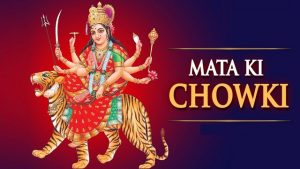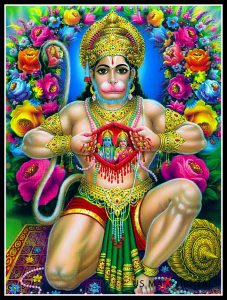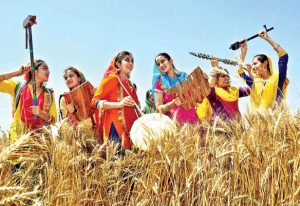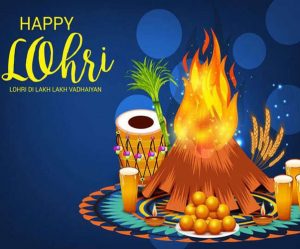Calendar
| Sun | Mon | Tue | Wed | Thu | Fri | Sat |
|---|---|---|---|---|---|---|
| Sunday Bhajan and Satsang 11:30 am Sunday Bhajan and Satsang Dec 7 @ 11:30 am – 1:00 pm  Every Sunday, we have SATSANG (Bhajans, kirtans, Kathas etc.) From 11:30 AM – 01:00 PM followed by Aarti and Prasadam (Lunch) | ||||||
| Sunday Bhajan and Satsang 11:30 am Sunday Bhajan and Satsang Dec 14 @ 11:30 am – 1:00 pm  Every Sunday, we have SATSANG (Bhajans, kirtans, Kathas etc.) From 11:30 AM – 01:00 PM followed by Aarti and Prasadam (Lunch) | DURGA MATA KI CHOWKI 6:00 pm DURGA MATA KI CHOWKI Dec 20 @ 6:00 pm – 9:30 pm  If you would like to host the Mata Ki Chowki at Shree Radhey Shyam Temple, Contact : Raja Sharma 708-822-6656 Maa Durga is revered as the Mother Goddess among the Hindu... | |||||
| Sunday Bhajan and Satsang 11:30 am Sunday Bhajan and Satsang Dec 21 @ 11:30 am – 1:00 pm  Every Sunday, we have SATSANG (Bhajans, kirtans, Kathas etc.) From 11:30 AM – 01:00 PM followed by Aarti and Prasadam (Lunch) | ||||||
| Sunday Bhajan and Satsang 11:30 am Sunday Bhajan and Satsang Dec 28 @ 11:30 am – 1:00 pm  Every Sunday, we have SATSANG (Bhajans, kirtans, Kathas etc.) From 11:30 AM – 01:00 PM followed by Aarti and Prasadam (Lunch) |
According to Hindu scriptures, Lord Brahma started the creation of the world from the month of Chaitra, which is regarded as the first month of the Hindu calendar. It marks the beginning of the new season when new flowers and fruits start to blossom. Chaitra month fall in March- April, when the Sun starts its journey through the Zodiac cycle. Some people believe that Goddess Durga descended on the first day of Chaitra Navratri and Brahma started the work of creation of the universe at the behest of Mother Durga. Another belief is that Lord Shiva allowed his wife Durga to visit her parent’s house for nine days (Chaitra Navratri). During these nine days, it is said that the Goddess killed demon Mahishasura. This signifies the victory of good over evil. It is customary for Hindu women to visit their parents’ home during this auspicious time.
Maharashtran Hindus refer to the festival, observed on the same day, as Gudi Padwa (Marathi: गुढी पाडवा).
The Sindhis celebrate the same day as Cheti Chand, which is the beginning of their calendar year.
Manipuris also celebrate their New Year as Sajibu Nongma Panba on the same day.
The Hindus of Bali in Indonesia also celebrate their new year on the same day as Nyepi.
Ugadi is one of the five Hindu national public holidays in Mauritius

Ram Navami Rituals: Hindu Culture & Traditions
This festival is observed in order to celebrate the birth of Marayada Purshottam Ram, considered to be a form of Lord Vishnu, one of the prime deities of Hindu trio. It is said that, Lord Rama is not only god but also the ideal figure for a human being. He is considered to be an ideal son, a doting husband, a mighty king, a wonderful brother and a great father. On the occasion of Rama Navami, mot only the people in India but also the Hindu community living in the other parts of the world celebrate this great day with immense joy and fervor.

Hanuman Jayanti celebrates the birth of Lord Hanuman. Hanuman was the son of Anjana, a female spirit of the clouds and waters, and Desari, the chief of the vanara, a group of powerful monkey people who lived in the forests. The wind god Vayu also played a role in the conception and birth of Hanuman. Some texts identify Hanuman as an incarnation of Shiva, but Hanuman is best known for his role in the epic poem and sacred text the Ramayana.
Hanuman is worshipped as a deity with the ability to attain victory against evil and provide protection. On this festival, devotees of Hanuman celebrate him and seek his protection and blessings.

Vaisakhi is a harvest festival for people of the Punjab region. In the Punjab, Vaisakhi marks the ripening of the rabi harvest. Vaisakhi also marks the Punjabi new year. This day is observed as a thanksgiving day by farmers whereby farmers pay their tribute, thanking God for the abundant harvest and also praying for future prosperity.
Vaisakhi is traditionally observed on 13 or 14 April, every year. For many Hindus, it marks the solar new year.

